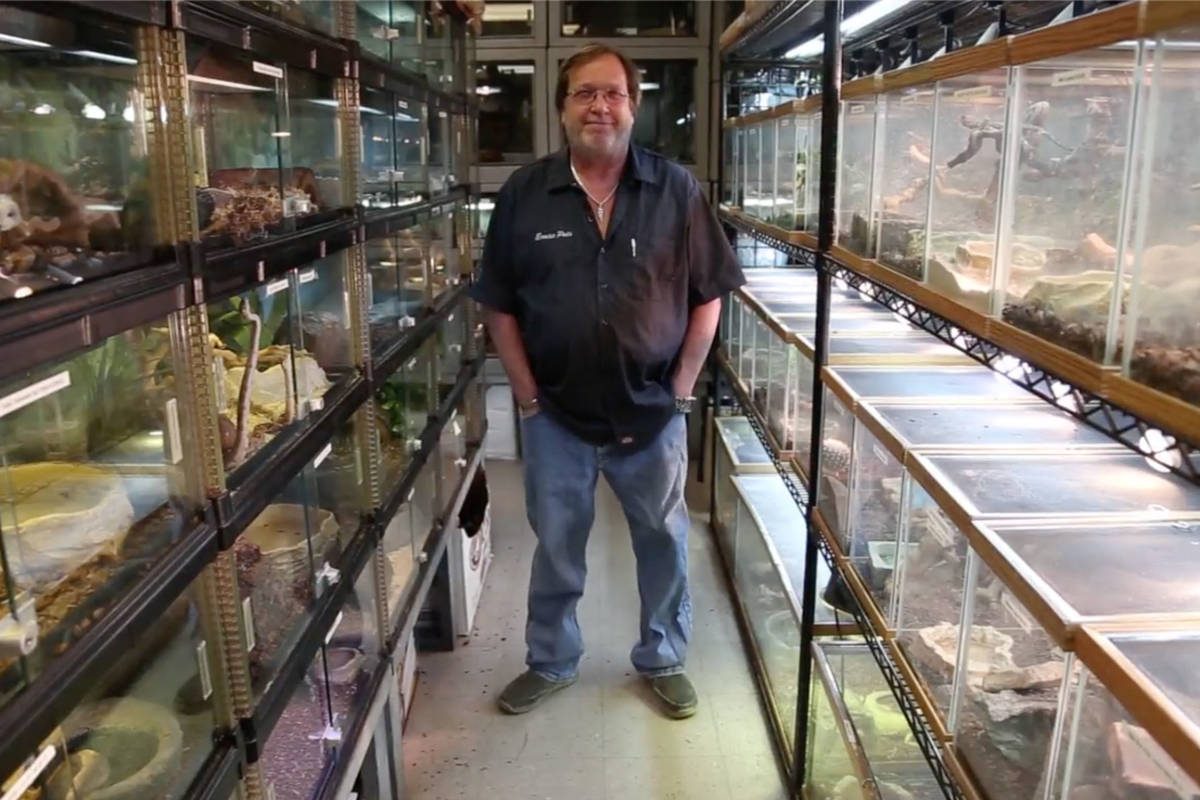Longtime Las Vegas exotic pets dealer Ken Foose dies
For more than two decades, Ken Foose provided snakes, lizards, frogs, spiders, turtles and other beasties to Southern Nevadans and others around the world seeking companion animals that didn’t bark, chirp or meow.
Foose, who opened Exotic Pets, 2410 N. Decatur Blvd., No. 160, in 1991, died Monday. He was 61. His daughter, Ashley Foose, said the cause of death was a heart attack.
David Syzdek, an environmental biologist with the Southern Nevada Water Authority who was friends with Foose for about 25 years, said Foose was “very ethical” in selling exotic animals and wouldn’t sell an animal to a prospective buyer who wasn’t ready to care for it.
Foose also was “a brilliant source of knowledge, both with wild and captive animals” and “a great resource for the hobbyist,” Syzdek said.
“His store was like visiting the best zoo in the country’s reptile house. There was an incredible variety of animals in the store, just incredible animals from all over the world.
“He was a good friend and a real resource in the community. He’ll be missed,” Syzdek said.
According to a 2012 profile of Foose on the National Reptile and Amphibian Advisory Council’s webpage, Foose held a master’s degree in zoology from the University of Kansas and served as zookeeper at several zoological parks, as well as, in 1984, a private zoo called Reptiles of the West, before opening his store in Las Vegas.
Foose told the Review-Journal in 2016 that he initially wanted to be a cetacean biologist, but he joked that the difficulty of fitting a whale into a 10-gallon aquarium steered him toward herpetology.
Foose said that he always has been fascinated with snakes but noted that, as he grew older, he was becoming “more of a turtle and tortoise guy. There’s something very pacifying about a tortoise.”
Even after a lifetime of keeping and studying reptiles and amphibians, he still understood the appeal of amateur herpetology. “A 12-year-old kid with a frog in a jar is a herpetologist,” he said. “He’s caring for the animal, he’s feeding the animal, he’s studying the animal. He’s as much of a herpetologist as someone with a college degree.”
In 2019, Foose spoke before Nevada lawmakers who were considering a bill to ban private persons from possessing “wild animals,” including “big cats, bears, wolves and primates.” Foose told lawmakers a law was not necessary because “there are very few people keeping these large animals and they keep them safely.”
“Horses and livestock kill more people in the world than any other animals combined,” he said. “No one is banning cattle or horses.”
But, Foose said, “exotic animals are soft targets and elicit fear … ”
In a 2017 story in The New Yorker about reptile trafficking, Foose was cited as a “virtuous” herper (slang for people who search for reptiles) speaking out against the illegal trade of reptiles. The story also called him “a minor celebrity among herpers,” which Foose put into perspective.
“If you take your finger and your thumb and you put them about an inch apart, that’s the field I’m a rock star in,” he said.
Survivors include Foose’s daughter, Ashley Foose, and son, Isaac Foose.
A GoFundMe page has been created to raise money for Ken Foose’s memorial and funeral expenses (gofundme.com/f/ken-foose-memorial-and-funeral-expenses).
A private memorial service is scheduled for 1 p.m. Thursday. Ashley Foose said persons wishing to attend should call her at 774-823-2622.
Contact John Przybys at jprzybys@reviewjournal.com. Follow @JJPrzybys on Twitter.


















